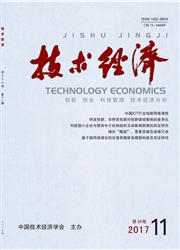

 中文摘要:
中文摘要:
在三重底线原则和回收物流相关理论的基础上,以博弈论为基本方法,研究了由制造商、销售商和第三方物流服务商构成的回收物流运作体系以及政府的环境规制对相关成员企业构成的供应链的影响。研究结果显示:在集中决策下,新产品零售价、旧产品回收价以及系统利润均为最优;以回收率为基准的激励机制能有效提高废旧产品回收水平,使得制造商、销售商和第三方物流服务商的利润均有所增加,同时提高了消费者剩余和社会福利。指出政府设置合适的目标回收率和奖惩力度可以实现环境保护、经济利益提高与社会发展的均衡。
 英文摘要:
英文摘要:
Based on the triple bottom line principle and the theory of recycle logistics,this paper studies the recovery logistics operation system constructed by manufacturers,retailers and third-party logistics providers,and the impact of government's environmental regulation on the supply chain by using the game theory. The conclusions are as follows: under the centralized decision-making, new product price, recovery product price and system profit could all reach to be optimal;the incentive mechanism based on recovery rate as the benchmark could effectively enhance the recovery rate of waste products,and make the profits of manufacturers,retailers and third party logistics providers increased,and increase the levels of consumer surplus and social welfare. Finally,it points out that an appropriate target recovery rate set by govermen and incentive degree could balance environmental protection,economic benefit and social development.
 同期刊论文项目
同期刊论文项目
 同项目期刊论文
同项目期刊论文
 期刊信息
期刊信息
